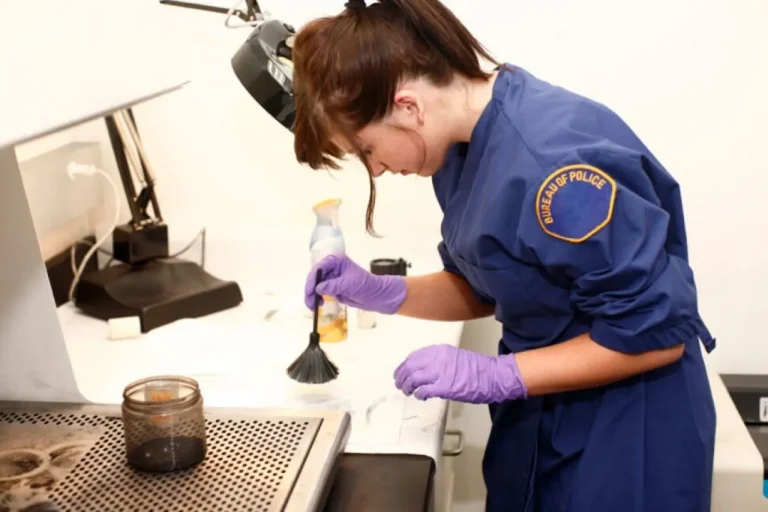Career Paths For Behavioral Science Degree Holders
From marketing to healthcare to criminal justice, a behavioral science degree equips graduates with the knowledge and skills for diverse, meaningful careers. Understanding human thoughts, emotions, and actions through psychology, sociology and anthropology creates many opportunities to enact positive change across industries.
In this comprehensive guide, we explore the fulfilling career paths you can pursue with a degree in behavioral science.
If you’re short on time, here’s a quick overview of career options: Behavioral scientists find employment in areas like marketing, sales, human resources, user experience, social work, healthcare, criminal justice, education, research, business consulting and more.
Marketing and Consumer Research
Market Research Analyst
A behavioral science degree can open up exciting career opportunities in the field of market research. Market research analysts play a crucial role in helping companies understand consumer behavior, market trends, and competitor strategies.
They collect and analyze data to provide insights that inform marketing strategies and decision-making processes. With a strong background in behavioral science, these professionals can apply their knowledge to interpret consumer motivations and preferences, helping businesses develop effective marketing campaigns and product offerings.
Market research analysts are responsible for designing surveys and questionnaires, conducting interviews, and analyzing data using statistical techniques. They also stay updated with the latest market research tools and methodologies to ensure accurate and reliable data collection.
By combining their behavioral science expertise with market research skills, these professionals contribute to the success of companies in various industries, including retail, advertising, and technology.
Marketing Manager
A career as a marketing manager is another promising path for behavioral science degree holders. Marketing managers oversee all aspects of a company’s marketing efforts, including market research, advertising, and brand management.
Their role is to develop and implement marketing strategies to promote products or services, attract customers, and increase sales.
With a deep understanding of consumer behavior gained through their behavioral science background, marketing managers can effectively target and engage specific market segments. They utilize market research data to identify consumer needs and preferences, develop marketing campaigns that resonate with the target audience, and measure the success of these efforts.
Additionally, they collaborate with other departments, such as sales and product development, to align marketing strategies with overall business objectives.
Brand Strategist
Behavioral science degree holders can also thrive as brand strategists, helping companies build and strengthen their brand identity. Brand strategists develop comprehensive plans that define the brand’s personality, values, and positioning in the market.
They conduct market research to understand consumer perceptions and preferences, and use this knowledge to create compelling brand messages and marketing campaigns.
A strong foundation in behavioral science enables brand strategists to understand the psychological factors that influence consumer decision-making and brand loyalty. They leverage this understanding to develop strategies that resonate with target audiences and create long-lasting connections.
Brand strategists collaborate with marketing teams, graphic designers, and advertising agencies to ensure consistent messaging across different platforms and channels.
By combining their expertise in behavioral science with marketing and consumer research skills, behavioral science degree holders can excel in these career paths, contributing to the success of businesses in understanding and influencing consumer behavior.
Human Resources
A behavioral science degree can open up various career opportunities in the field of human resources. Human resources professionals play a crucial role in managing an organization’s most valuable asset – its employees.
They are responsible for recruiting, training, and developing personnel, as well as ensuring compliance with labor laws and fostering a positive work environment.
HR Specialist
An HR specialist is an entry-level position that involves assisting in various HR functions. This role may include tasks such as screening resumes, conducting interviews, and administering employee benefits.
HR specialists also play a key role in ensuring that the organization’s policies and practices align with legal requirements and industry standards. They act as a liaison between management and employees, addressing any concerns or issues that may arise.
Training and Development Manager
As a training and development manager, individuals with a behavioral science degree can help organizations enhance the skills and knowledge of their employees. These professionals design and implement training programs that align with the organization’s goals and objectives.
They assess the training needs of employees, develop training materials, and evaluate the effectiveness of training programs. By providing employees with the necessary tools and resources to succeed, training and development managers contribute to the overall growth and success of the organization.
Recruiter
A recruiter plays a vital role in the hiring process of an organization. They are responsible for sourcing, screening, and selecting candidates for job openings. Recruiters utilize various strategies to attract top talent, such as posting job ads, attending career fairs, and utilizing social media platforms.
They also conduct interviews and reference checks to ensure that the candidates fit the organization’s culture and requirements. With their understanding of human behavior and motivation, behavioral science degree holders can excel in this role by identifying candidates who possess the necessary skills and attributes for success.
User Experience Research
User Experience (UX) research is a crucial field within behavioral science that focuses on understanding and improving the interaction between users and products or services. This research plays a vital role in creating user-centered designs and enhancing the overall user experience.
There are several career paths available for behavioral science degree holders interested in UX research.
UX Researcher
A UX Researcher is responsible for conducting research to gain insights into user behavior, preferences, and needs. They use various research methods such as interviews, surveys, and usability testing to collect data and analyze user experiences.
By understanding user motivations and challenges, UX Researchers provide valuable insights to inform the design and development of user-friendly products and services.
Usability Analyst
A Usability Analyst focuses on evaluating the usability and effectiveness of digital interfaces, websites, and applications. They conduct usability tests and analyze user feedback to identify areas for improvement.
Usability Analysts play a crucial role in ensuring that products and services are intuitive, efficient, and enjoyable for users. They collaborate with designers and developers to implement changes that enhance the overall user experience.
User Experience Designer
A User Experience Designer combines the principles of design and behavioral science to create visually appealing and user-friendly interfaces. They collaborate with interdisciplinary teams to understand user needs and translate them into intuitive designs.
User Experience Designers utilize prototyping and testing techniques to refine their designs based on user feedback. Their focus is on creating seamless and engaging experiences that meet the needs and expectations of users.
For more information on careers in user experience research, you can visit www.nngroup.com. This website provides valuable resources and insights into the field of UX research, including articles, case studies, and industry trends.
Social and Community Services
A degree in behavioral science opens up various career paths in the field of social and community services. Professionals in this field work to improve the well-being of individuals, families, and communities by addressing social issues and providing support and resources.
Here are three career options for behavioral science degree holders in social and community services:
Social Worker
Social workers play a crucial role in helping individuals and families overcome challenges and improve their quality of life. They assess clients’ needs, provide counseling and support, and connect them with appropriate resources and services.
Social workers can specialize in areas such as child and family services, mental health, substance abuse, or gerontology. They work in a variety of settings, including hospitals, schools, government agencies, and nonprofit organizations.
Family Counselor
Family counselors work with families facing various issues, such as marital conflicts, parenting challenges, or communication problems. They help families develop healthy relationships, improve communication skills, and resolve conflicts.
Family counselors may also provide guidance and support during major life transitions, such as divorce or loss. They typically work in private practice, community mental health centers, or family service agencies.
Community Program Coordinator
Community program coordinators are responsible for planning, implementing, and evaluating programs that address community needs. They work closely with community members, organizations, and stakeholders to identify issues and develop initiatives that promote social change and improve quality of life.
Community program coordinators may focus on areas such as youth development, education, healthcare, or poverty alleviation. They often work for nonprofit organizations, government agencies, or community-based organizations.
For more information on careers in social and community services, you can visit websites like Bureau of Labor Statistics or National Association of Social Workers.
Healthcare Services
Healthcare Social Worker
A behavioral science degree can open doors to a rewarding career as a healthcare social worker. These professionals play a crucial role in assisting patients and their families in navigating the complex healthcare system.
They provide emotional support, connect patients with community resources, and help them access the necessary healthcare services. Healthcare social workers often work in hospitals, clinics, and other healthcare facilities.
They collaborate with medical professionals to develop treatment plans that address both the physical and psychological needs of patients. With a growing demand for healthcare services, the job outlook for healthcare social workers is promising.
Mental Health Counselor
A behavioral science degree can also pave the way for a career as a mental health counselor. Mental health counselors work with individuals, couples, and families to address various mental health issues.
They provide therapy and counseling services to help individuals cope with stress, anxiety, depression, and other psychological challenges. Mental health counselors may work in private practices, community mental health centers, or rehabilitation facilities.
They play a vital role in promoting mental wellness and helping individuals lead fulfilling lives. The demand for mental health counselors is on the rise, making it an excellent career path for behavioral science degree holders.
Public Health Educator
Another career option for behavioral science degree holders is becoming a public health educator. These professionals work to promote public health and prevent diseases by educating communities about healthy habits and behaviors.
Public health educators design and deliver health education programs, conduct research, and collaborate with various stakeholders to develop effective public health strategies. They may work in government agencies, non-profit organizations, or healthcare settings.
Public health educators play a crucial role in improving population health and reducing healthcare disparities. With the increasing focus on preventive healthcare, the demand for public health educators is expected to grow.
Criminal Justice and Law
A behavioral science degree can open up various career paths in the field of criminal justice and law. Graduates with a strong understanding of human behavior and psychology can contribute significantly to the criminal justice system by applying their knowledge to solve crimes, prevent criminal activities, and rehabilitate offenders.
Forensic Psychologist
One of the career options for behavioral science degree holders in the field of criminal justice is becoming a forensic psychologist. Forensic psychologists work closely with law enforcement agencies, courts, and correctional facilities to assess and evaluate individuals involved in criminal cases.
They apply their knowledge of psychology to understand the motivations and mental state of offenders, provide expert testimony in court, and assist in determining appropriate sentencing or treatment options.
Forensic psychologists may also be involved in profiling criminals and assisting in the investigation process.
Criminologist
Criminologists study the causes and consequences of crime, using their expertise in behavioral science to analyze criminal behavior patterns, develop theories, and propose strategies for crime prevention.
They work in research institutions, government agencies, and law enforcement organizations to collect and analyze data related to crime rates, demographics, and social factors. Criminologists also play a crucial role in developing policies and programs aimed at reducing crime and improving the effectiveness of the criminal justice system.
Parole Officer
Parole officers work with individuals who have been released from prison and are serving their remaining sentence in the community under supervision. Behavioral science degree holders can pursue a career as a parole officer, where they will utilize their knowledge of human behavior and rehabilitation techniques to help reintegrate offenders back into society.
They assess an individual’s risk of reoffending, provide counseling and support, and monitor their compliance with parole conditions. Parole officers play a critical role in ensuring the successful reintegration of individuals into society while also prioritizing public safety.
For more information on careers in criminal justice and law, you can visit websites such as Bureau of Labor Statistics and American Bar Association.
Education and Instruction
Behavioral science degree holders have a variety of career paths in the field of education and instruction. These professionals play a crucial role in shaping the educational experiences and development of students.
School Counselor
A popular career choice for behavioral science degree holders is becoming a school counselor. School counselors work directly with students, providing guidance and support in academic, social, and personal matters.
They help students navigate challenges, set goals, and develop skills to succeed in school and beyond. With a deep understanding of human behavior and psychology, school counselors can assess students’ needs and create individualized plans to help them thrive.
They also collaborate with teachers, parents, and administrators to create a positive and inclusive learning environment.
Training and Development Specialist
Another career option for those with a behavioral science degree is becoming a training and development specialist. These professionals design and implement training programs to enhance employees’ skills and knowledge.
They assess organizational needs, identify areas for improvement, and develop training materials and workshops. By understanding human behavior and motivation, training and development specialists can create effective learning experiences that drive performance and productivity.
They also evaluate the effectiveness of training programs and make necessary adjustments to ensure continuous improvement.
Education Administrator
Behavioral science degree holders can also pursue a career in education administration. Education administrators are responsible for overseeing the operations of educational institutions, such as schools or colleges.
They develop and implement policies and procedures, manage budgets, and coordinate activities to ensure smooth functioning of the institution. With their knowledge of human behavior, education administrators can create a positive and supportive environment for students and staff.
They also collaborate with teachers, parents, and community members to enhance the educational experience and promote student success.
According to the Bureau of Labor Statistics, the median annual wage for school counselors was $57,040 in May 2020, and the job outlook is projected to grow 8 percent from 2020 to 2030, faster than the average for all occupations.
For training and development specialists, the median annual wage was $63,490 in May 2020, and the job outlook is projected to grow 9 percent from 2020 to 2030. For education administrators, the median annual wage was $100,980 in May 2020, and the job outlook is projected to grow 4 percent from 2020 to 2030.
These statistics demonstrate the promising career prospects for behavioral science degree holders in the field of education and instruction.
Whether it’s providing guidance to students as a school counselor, designing impactful training programs as a training and development specialist, or overseeing educational institutions as an education administrator, behavioral science degree holders have a range of rewarding career options in the field of education and instruction.
These professionals have the opportunity to make a positive impact on the lives of students and contribute to the improvement of educational systems.
Research and Analysis
One of the most common career paths for individuals with a behavioral science degree is in research and analysis. These professionals play a crucial role in collecting and analyzing data to gain insights into human behavior and patterns.
There are several job roles within this field that behavioral science degree holders can pursue.
Data Analyst
A data analyst is responsible for collecting, organizing, and interpreting large sets of data to identify trends and patterns. They use statistical techniques and software to analyze data and provide insights that can be used to make informed decisions.
In the context of behavioral science, data analysts may work with data related to human behavior, such as survey responses or experimental results. They help organizations understand their target audience and make data-driven decisions to achieve their goals.
According to the Bureau of Labor Statistics, the demand for data analysts is expected to grow by 31% from 2019 to 2029, much faster than the average for all occupations. This highlights the increasing importance of data analysis in various industries and the potential for career growth in this field.
Academic Researcher
Academic researchers in behavioral science focus on conducting studies and experiments to expand knowledge in the field. They design research projects, collect data, and analyze findings to contribute to existing research or develop new theories.
This career path is well-suited for individuals who have a strong interest in understanding human behavior and a passion for advancing the field through research.
As an academic researcher, one can work in universities, research institutions, or government agencies. They may collaborate with other researchers, publish their findings in academic journals, and present their work at conferences.
This career path allows individuals to contribute to the broader scientific community and make a lasting impact on the field of behavioral science.
Program Evaluator
A program evaluator assesses the effectiveness of programs and interventions designed to address behavioral issues or promote positive change. They gather data, analyze program outcomes, and provide recommendations for improvement.
Program evaluators play a crucial role in ensuring that resources are effectively allocated and that programs are achieving their intended goals.
Program evaluation can be applied in various settings, such as healthcare, education, or social services. Behavioral science degree holders can utilize their knowledge of human behavior to assess the impact of programs on individuals and communities.
This career path offers the opportunity to contribute to the development and improvement of interventions that aim to make a positive difference in people’s lives.
Conclusion
With expertise in human behavior, graduates with a behavioral science degree have diverse career opportunities across both the public and private sectors. Core skills in research, data analysis, critical thinking, and interpersonal communication are applicable to roles in marketing, UX, HR, healthcare, criminal justice, social services, education, and more.
A behavioral science degree provides a strong foundation for making a difference in many fields.







